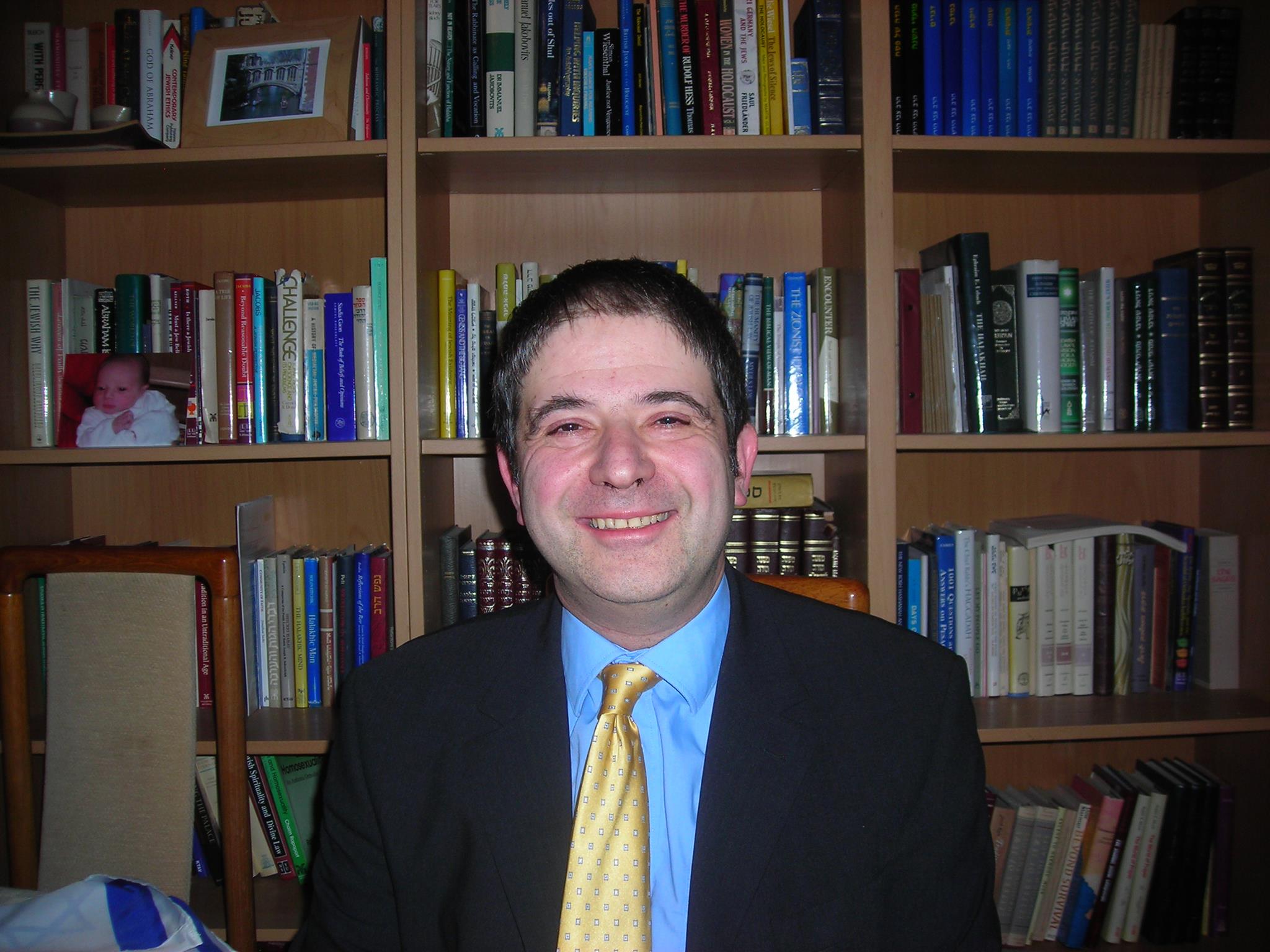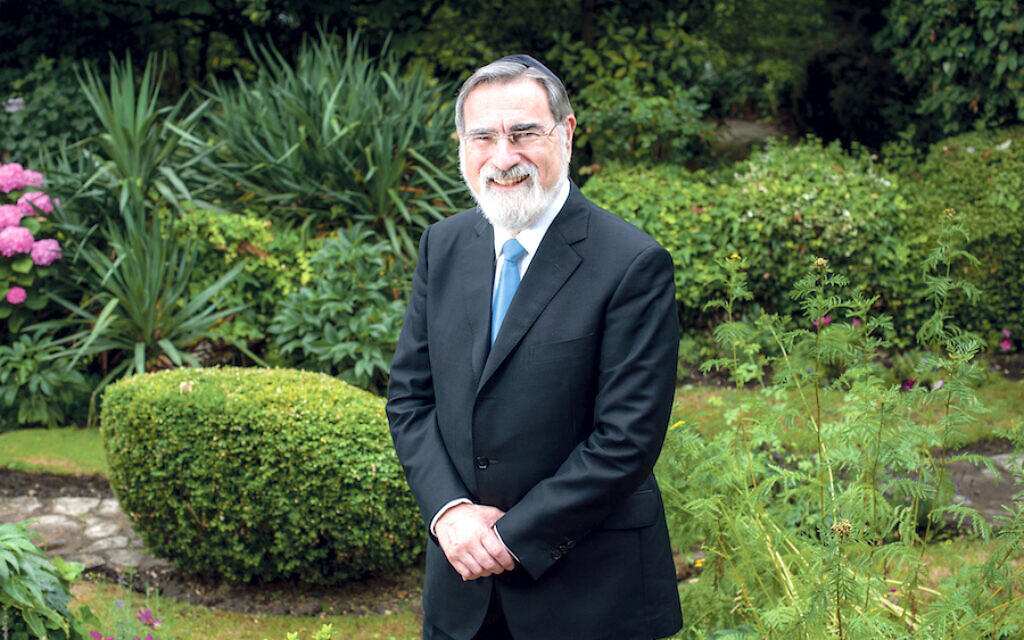‘The Torah, given in love, must be interpreted in love not violence’
Rabbi Dr Michael Harris of Hampstead Synagogue reflects on the work of the late Rabbi Lord Sacks, focusing on his opposition to religiously motivated violence
“Men never do evil so completely and cheerfully as when they do it from religious conviction.” With this powerful quotation from the 17th century thinker Blaise Pascal, the late Rabbi Lord Sacks began his book Not in God’s Name: Confronting Religious Violence.
As Rabbi Sacks documents in detail, horrendous acts of religiously motivated violence, commonplace in human history, but a phenomenon from which we might have hoped the 21st century would release us, have instead occurred with alarming regularity since 9/11.
The only way to have a genuine prospect of stemming this sinister tide, argues Rabbi Sacks, is to formulate a theology that severs the link between religious motivation and acts of terror. We must not cede the interpretation of religion to those who use it to justify radical violence.
Get The Jewish News Daily Edition by email and never miss our top stories Free Sign Up
Rabbi Sacks is clear this challenge applies to all three Abrahamic faiths, Judaism included, reminding us of the nefarious actions of Baruch Goldstein in massacring Palestinian Arabs at prayer in 1994 and Yigal Amir in assassinating Prime Minister Yitzchak Rabin in November 1995.
A key component of developing a theology of life and peace, rather than death and violence, is confronting what Rabbi Sacks calls biblical “hard texts” – passages “which, interpreted literally, can lead to hatred, cruelty and war”.
The key in dealing with such texts, Rabbi Sacks insists, is to avoid fundamentalism – a literal understanding of the biblical text that ignores the wider context of biblical values and overlooks the importance of textual interpretation.
Or, as he puts it in The Dignity of Difference: “Every great faith has within it harsh texts… The choice is ours. Will the generous texts of our tradition serve as interpretive keys to the rest, or will the abrasive passages determine our ideas of what we are and what we are called on to do?”

In Not in God’s Name, Rabbi Sacks goes further, suggesting that ultimately the choice is not ours after all: “Hard texts need interpreting; without it, they lead to violence. God has given us both the mandate and the responsibility to do just that.”
In Not in God’s Name, as well as in some other writings, Rabbi Sacks illustrates in more detail how the work of addressing hard texts in a Jewish context is traditionally done. He focuses on Torah passages including the Akedah, the commandments to destroy the Seven Canaanite Nations and the Amalekites, and the law of the rebellious son who is sentenced to death, a punishment which, from a surface reading of the text, appears grossly disproportionate to his offences.
Central to defusing such passages, as Rabbi Sacks makes clear, is the role of Torah Shebe’al Peh, the Oral Torah of Judaism.
The Oral Torah gives us a tradition of Jewish interpretation of the Biblical text. To read the text without such interpretation, to invariably take the word of the Bible literally, is to follow in the intellectual footsteps of the Sadducees and Karaites, which the rabbinic tradition rejected as heretical.
For example, the Talmud, the foundational document of the Oral Torah, teaches that the Assyrian monarch Sennacherib’s extensive military adventures and relocation of populations in the 8th century BCE created a situation in which the national identity of any individual can no longer
be determined.
As a result, the Biblical commandment to exterminate the Seven Canaanite Nations has long been inoperative. Maimonides extends this notion to the commandment to wipe out the Amalekites.
Moreover, Rabbi Sacks emphasises that the whole tenor of rabbinic Judaism marginalises any military aspect and places spirituality centre stage. The Torah, given in love, must be interpreted in love.
- By Rabbi Dr Michael Harris, who serves Hampstead Synagogue. This class is part of a fortnightly online course run by the London School of Jewish Studies about the key ideas of Rabbi Sacks, taught by his up-and-coming and well-known students from around the world. It continues on Monday, 19 July. To book: www.lsjs.ac.uk

Thank you for helping to make Jewish News the leading source of news and opinion for the UK Jewish community. Today we're asking for your invaluable help to continue putting our community first in everything we do.
For as little as £5 a month you can help sustain the vital work we do in celebrating and standing up for Jewish life in Britain.
Jewish News holds our community together and keeps us connected. Like a synagogue, it’s where people turn to feel part of something bigger. It also proudly shows the rest of Britain the vibrancy and rich culture of modern Jewish life.
You can make a quick and easy one-off or monthly contribution of £5, £10, £20 or any other sum you’re comfortable with.
100% of your donation will help us continue celebrating our community, in all its dynamic diversity...
Engaging
Being a community platform means so much more than producing a newspaper and website. One of our proudest roles is media partnering with our invaluable charities to amplify the outstanding work they do to help us all.
Celebrating
There’s no shortage of oys in the world but Jewish News takes every opportunity to celebrate the joys too, through projects like Night of Heroes, 40 Under 40 and other compelling countdowns that make the community kvell with pride.
Pioneering
In the first collaboration between media outlets from different faiths, Jewish News worked with British Muslim TV and Church Times to produce a list of young activists leading the way on interfaith understanding.
Campaigning
Royal Mail issued a stamp honouring Holocaust hero Sir Nicholas Winton after a Jewish News campaign attracted more than 100,000 backers. Jewish Newsalso produces special editions of the paper highlighting pressing issues including mental health and Holocaust remembrance.
Easy access
In an age when news is readily accessible, Jewish News provides high-quality content free online and offline, removing any financial barriers to connecting people.
Voice of our community to wider society
The Jewish News team regularly appears on TV, radio and on the pages of the national press to comment on stories about the Jewish community. Easy access to the paper on the streets of London also means Jewish News provides an invaluable window into the community for the country at large.
We hope you agree all this is worth preserving.
-
By Brigit Grant
-
By Laurent Vaughan - Senior Associate (Bishop & Sewell Solicitors)
-
By Laurent Vaughan - Senior Associate (Bishop & Sewell Solicitors)
-
By Laurent Vaughan - Senior Associate (Bishop & Sewell Solicitors)
-
By Laurent Vaughan - Senior Associate (Bishop & Sewell Solicitors)






















